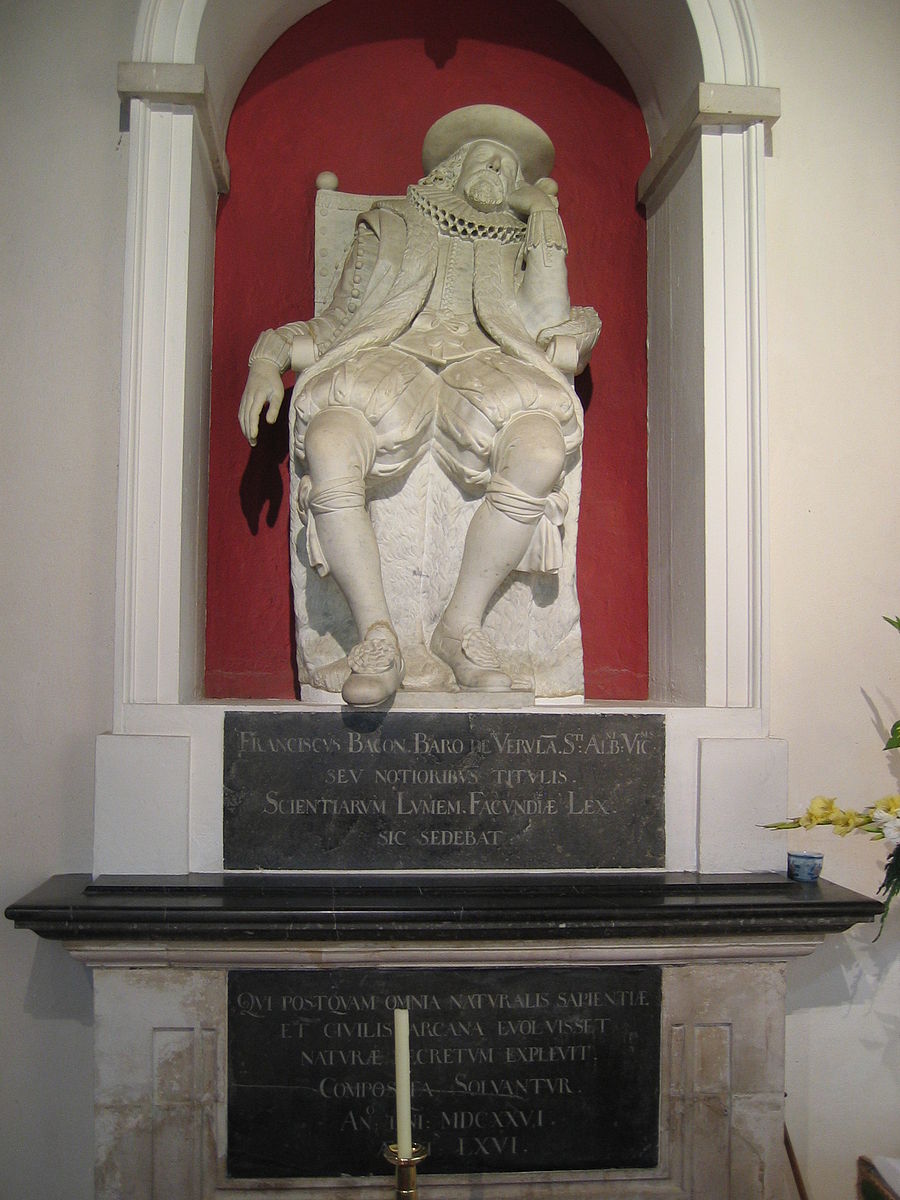
Francis Bacon
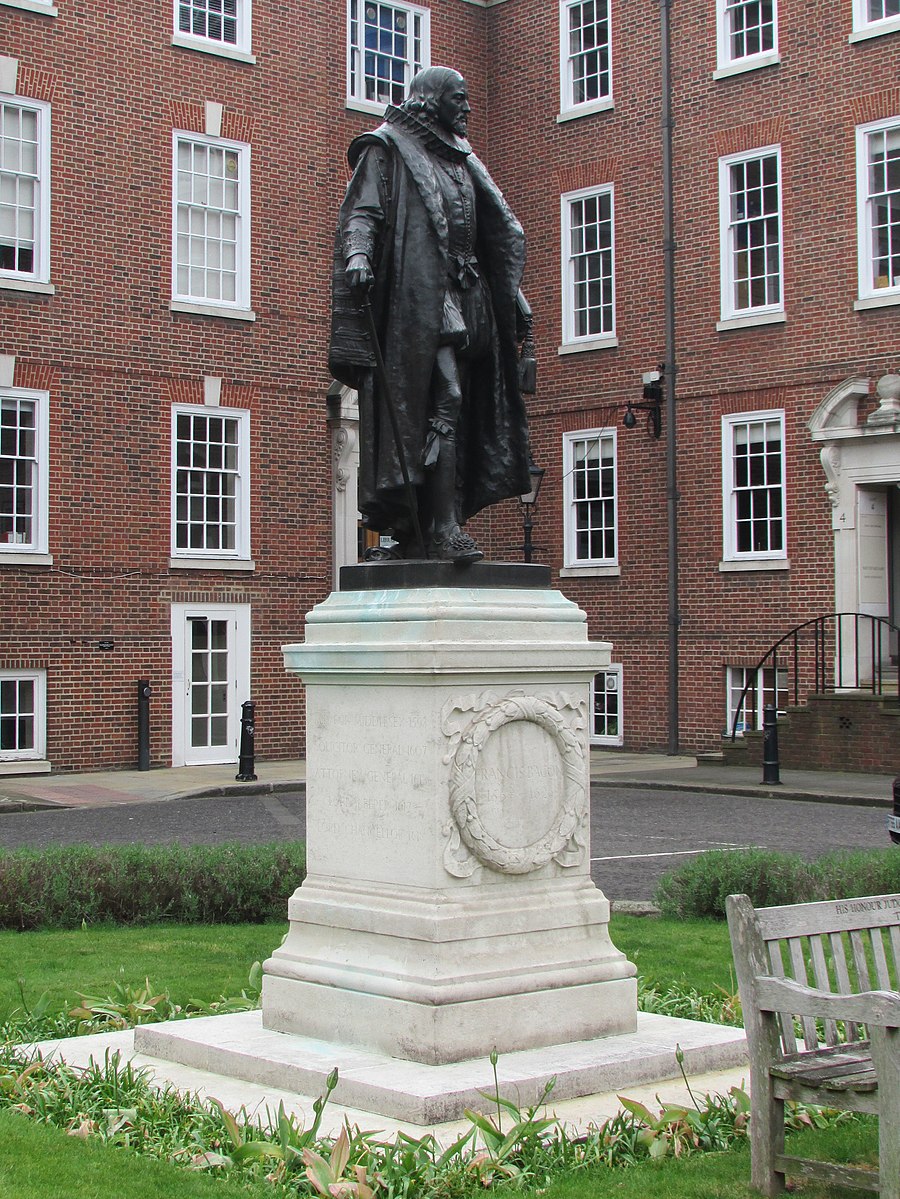
Francis Bacon, 1st Viscount St Alban, (22 January 1561 – 9 April 1626), also known as Lord Verulam, was an English philosopher and statesman who served as Attorney General and as Lord Chancellor of England. His works are seen as developing the scientific method and remained influential through the scientific revolution.
Bacon has been called the father of empiricism. He argued for the possibility of scientific knowledge based only upon inductive reasoning and careful observation of events in nature. Most importantly, he argued science could be achieved by the use of a sceptical and methodical approach whereby scientists aim to avoid misleading themselves. Although his most specific proposals about such a method, the Baconian method, did not have long-lasting influence, the general idea of the importance and possibility of a sceptical methodology makes Bacon the father of the scientific method. This method was a new rhetorical and theoretical framework for science, whose practical details are still central to debates on science and methodology.
Francis Bacon was a patron of libraries and developed a system for cataloguing books under three categories – history, poetry, and philosophy – which could further be divided into specific subjects and subheadings. Bacon was educated at Trinity College, Cambridge, where he rigorously followed the medieval curriculum, largely in Latin.
Bacon was the first recipient of the Queen’s counsel designation, conferred in 1597 when Elizabeth I of England reserved him as her legal advisor. After the accession of James VI and I in 1603, Bacon was knighted, then created Baron Verulam in 1618 and Viscount St Alban in 1621.
He had no heirs and so both titles became extinct on his death in 1626 at the age of 65. He died of pneumonia, with one account by John Aubrey stating that he had contracted it while studying the effects of freezing on meat preservation. He is buried at St Michael’s Church, St Albans, Hertfordshire.
Early life
Francis Bacon was born on 22 January 1561 at York House near the Strand in London, the son of Sir Nicholas Bacon (Lord Keeper of the Great Seal) by his second wife, Anne (Cooke) Bacon, the daughter of the noted Renaissance humanist Anthony Cooke. His mother’s sister was married to William Cecil, 1st Baron Burghley, making Burghley Bacon’s uncle.
Biographers believe that Bacon was educated at home in his early years owing to poor health, which would plague him throughout his life. He received tuition from John Walsall, a graduate of Oxford with a strong leaning toward Puritanism. He went up to Trinity College at the University of Cambridge on 5 April 1573 at the age of 12, living for three years there, together with his older brother Anthony Bacon under the personal tutelage of Dr John Whitgift, future Archbishop of Canterbury. Bacon’s education was conducted largely in Latin and followed the medieval curriculum. It was at Cambridge that Bacon first met Queen Elizabeth, who was impressed by his precocious intellect, and was accustomed to calling him “The young lord keeper”.
His studies brought him to the belief that the methods and results of science as then practised were erroneous. His reverence for Aristotle conflicted with his rejection of Aristotelian philosophy, which seemed to him barren, disputatious and wrong in its objectives.
On 27 June 1576, he and Anthony entered de societate magistrorum at Gray’s Inn. A few months later, Francis went abroad with Sir Amias Paulet, the English ambassador at Paris, while Anthony continued his studies at home. The state of government and society in France under Henry III afforded him valuable political instruction. For the next three years he visited Blois, Poitiers, Tours, Italy, and Spain. There is no evidence that he studied at the University of Poitiers. During his travels, Bacon studied language, statecraft, and civil law while performing routine diplomatic tasks. On at least one occasion he delivered diplomatic letters to England for Walsingham, Burghley, and Leicester, as well as for the queen.
The sudden death of his father in February 1579 prompted Bacon to return to England. Sir Nicholas had laid up a considerable sum of money to purchase an estate for his youngest son, but he died before doing so, and Francis was left with only a fifth of that money. Having borrowed money, Bacon got into debt. To support himself, he took up his residence in law at Gray’s Inn in 1579, his income being supplemented by a grant from his mother Lady Anne of the manor of Marks near Romford in Essex, which generated a rent of £46.
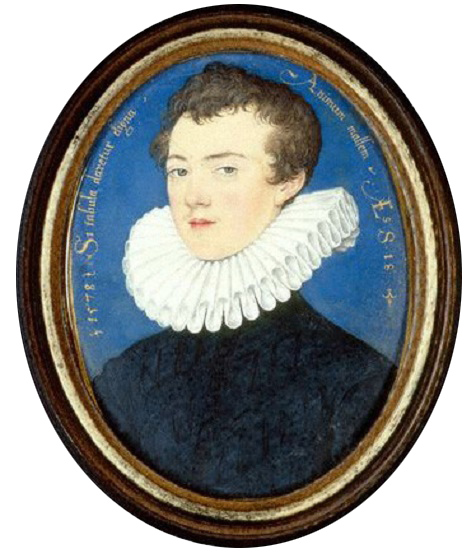
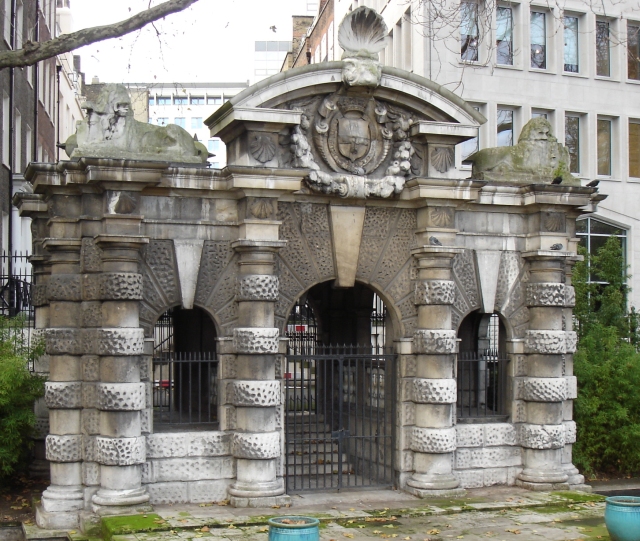
Parliamentarian
Bacon stated that he had three goals: to uncover truth, to serve his country, and to serve his church. He sought to further these ends by seeking a prestigious post. In 1580, through his uncle, Lord Burghley, he applied for a post at court that might enable him to pursue a life of learning, but his application failed. For two years he worked quietly at Gray’s Inn, until he was admitted as an outer barrister in 1582.
His parliamentary career began when he was elected MP for Bossiney, Cornwall, in a by-election in 1581. In 1584 he took his seat in Parliament for Melcombe in Dorset, and in 1586 for Taunton. At this time, he began to write on the condition of parties in the church, as well as on the topic of philosophical reform in the lost tract Temporis Partus Maximus. Yet he failed to gain a position that he thought would lead him to success. He showed signs of sympathy to Puritanism, attending the sermons of the Puritan chaplain of Gray’s Inn and accompanying his mother to the Temple Church to hear Walter Travers. This led to the publication of his earliest surviving tract, which criticized the English church’s suppression of the Puritan clergy. In the Parliament of 1586, he openly urged execution for the Catholic Mary, Queen of Scots.
About this time, he again approached his powerful uncle for help; this move was followed by his rapid progress at the bar. He became a bencher in 1586 and was elected a Reader in 1587, delivering his first set of lectures in Lent the following year. In 1589, he received the valuable appointment of reversion to the Clerkship of the Star Chamber, although he did not formally take office until 1608; the post was worth £1,600 a year.
In 1588 he became MP for Liverpool and then for Middlesex in 1593. He later sat three times for Ipswich (1597, 1601, 1604) and once for Cambridge University (1614).
He became known as a liberal-minded reformer, eager to amend and simplify the law. Though a friend of the crown, he opposed feudal privileges and dictatorial powers. He spoke against religious persecution. He struck at the House of Lords in its usurpation of the Money Bills. He advocated for the union of England and Scotland, which made him a significant influence toward the consolidation of the United Kingdom; and he later would advocate for the integration of Ireland into the Union. Closer constitutional ties, he believed, would bring greater peace and strength to these countries.
Final years of the Queen’s reign
Bacon soon became acquainted with the 2nd Earl of Essex, Queen Elizabeth’s favourite. By 1591 he acted as the earl’s confidential adviser.
In 1592 he was commissioned to write a tract in response to the Jesuit Robert Parson’s anti-government polemic, which he titled Certain Observations Made upon a Libel, identifying England with the ideals of democratic Athens against the belligerence of Spain.
Bacon took his third parliamentary seat for Middlesex when in February 1593 Elizabeth summoned Parliament to investigate a Roman Catholic plot against her. Bacon’s opposition to a bill that would levy triple subsidies in half the usual time offended the Queen: opponents accused him of seeking popularity, and for a time the Court excluded him from favour.
When the office of Attorney General fell vacant in 1594, Lord Essex’s influence was not enough to secure the position for Bacon and it was given to Sir Edward Coke. Likewise, Bacon failed to secure the lesser office of Solicitor General in 1595, the Queen pointedly snubbing him by appointing Sir Thomas Fleming instead. To console him for these disappointments, Essex presented him with a property at Twickenham, which Bacon subsequently sold for £1,800.
In 1597 Bacon became the first Queen’s Counsel designate, when Queen Elizabeth reserved him as her legal counsel. In 1597, he was also given a patent, giving him precedence at the Bar. Despite his designations, he was unable to gain the status and notoriety of others. In a plan to revive his position he unsuccessfully courted the wealthy young widow Lady Elizabeth Hatton. His courtship failed after she broke off their relationship upon accepting marriage to Sir Edward Coke, a further spark of enmity between the men. In 1598 Bacon was arrested for debt. Afterward, however, his standing in the Queen’s eyes improved. Gradually, Bacon earned the standing of one of the learned counsels. His relationship with the Queen further improved when he severed ties with Essex—a shrewd move, as Essex would be executed for treason in 1601.
With others, Bacon was appointed to investigate the charges against Essex. A number of Essex’s followers confessed that Essex had planned a rebellion against the Queen. Bacon was subsequently a part of the legal team headed by the Attorney General Sir Edward Coke at Essex’s treason trial. After the execution, the Queen ordered Bacon to write the official government account of the trial, which was later published as A DECLARATION of the Practices and Treasons attempted and committed by Robert late Earle of Essex and his Complices, against her Majestie and her Kingdoms … after Bacon’s first draft was heavily edited by the Queen and her ministers.
According to his personal secretary and chaplain, William Rawley, as a judge Bacon was always tender-hearted, “looking upon the examples with the eye of severity, but upon the person with the eye of pity and compassion”. And also that “he was free from malice”, “no revenger of injuries”, and “no defamer of any man”.
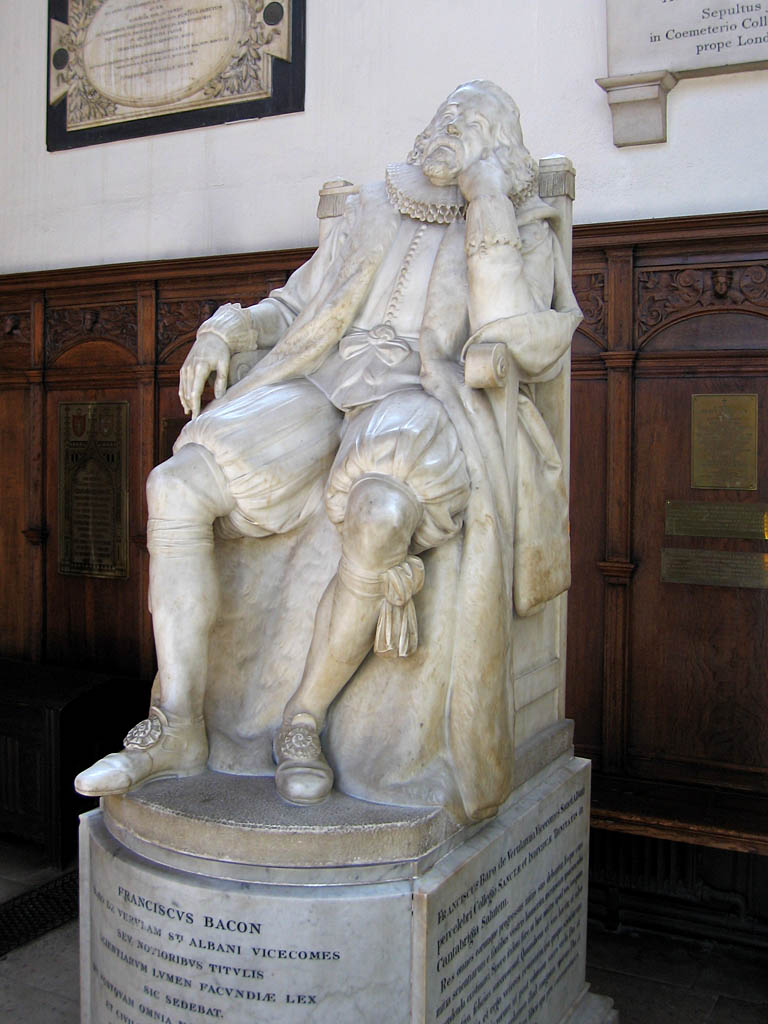
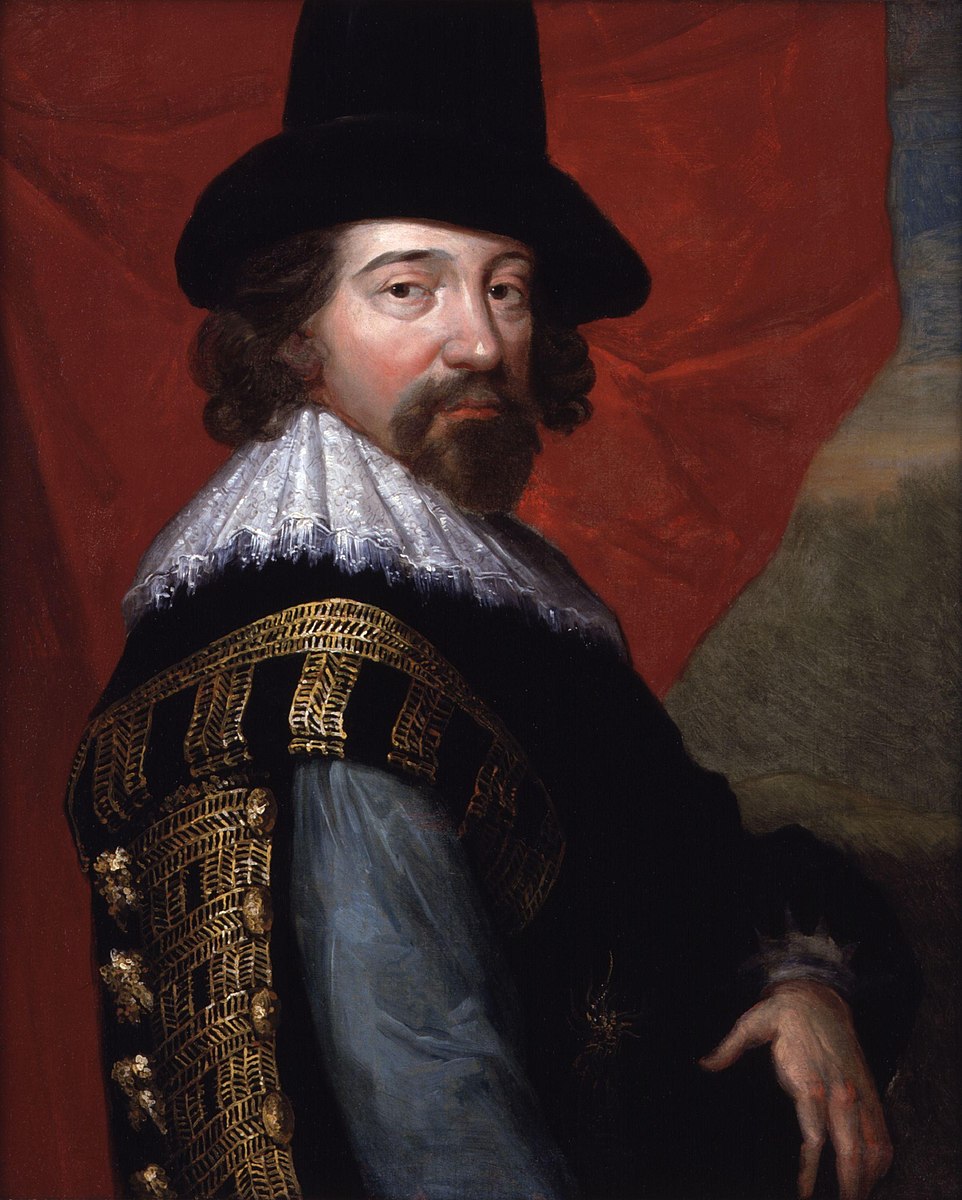
James I comes to the throne
The succession of James I brought Bacon into greater favour. He was knighted in 1603. In another shrewd move, Bacon wrote his Apologies in defense of his proceedings in the case of Essex, as Essex had favoured James to succeed to the throne.
The following year, during the course of the uneventful first parliament session, Bacon married Alice Barnham. In June 1607 he was at last rewarded with the office of solicitor general and in 1608 he began working as the Clerkship of the Star Chamber. Despite a generous income, old debts still could not be paid. He sought further promotion and wealth by supporting King James and his arbitrary policies.
In 1610 the fourth session of James’s first parliament met. Despite Bacon’s advice to him, James and the Commons found themselves at odds over royal prerogatives and the king’s embarrassing extravagance. The House was finally dissolved in February 1611. Throughout this period Bacon managed to stay in the favor of the king while retaining the confidence of the Commons.
In 1613 Bacon was finally appointed attorney general, after advising the king to shuffle judicial appointments. As attorney general, Bacon, by his zealous efforts—which included torture—to obtain the conviction of Edmund Peacham for treason, raised legal controversies of high constitutional importance;[36] and successfully prosecuted Robert Carr, 1st Earl of Somerset, and his wife, Frances Howard, Countess of Somerset, for murder in 1616. The so-called Prince’s Parliament of April 1614 objected to Bacon’s presence in the seat for Cambridge and to the various royal plans that Bacon had supported. Although he was allowed to stay, parliament passed a law that forbade the attorney general to sit in parliament. His influence over the king had evidently inspired resentment or apprehension in many of his peers. Bacon, however, continued to receive the King’s favour, which led to his appointment in March 1617 as temporary Regent of England (for a period of a month), and in 1618 as Lord Chancellor. On 12 July 1618 the king created Bacon Baron Verulam, of Verulam, in the Peerage of England; he then became known as Francis, Lord Verulam.
Bacon continued to use his influence with the king to mediate between the throne and Parliament, and in this capacity he was further elevated in the same peerage, as Viscount St Alban, on 27 January 1621.
Lord Chancellor and public disgrace
Bacon’s public career ended in disgrace in 1621. After he fell into debt, a parliamentary committee on the administration of the law charged him with 23 separate counts of corruption. His lifelong enemy, Sir Edward Coke, who had instigated these accusations, was one of those appointed to prepare the charges against the chancellor. To the lords, who sent a committee to enquire whether a confession was really his, he replied, “My lords, it is my act, my hand, and my heart; I beseech your lordships to be merciful to a broken reed.” He was sentenced to a fine of £40,000 and committed to the Tower of London at the king’s pleasure; the imprisonment lasted only a few days and the fine was remitted by the king. More seriously, parliament declared Bacon incapable of holding future office or sitting in parliament. He narrowly escaped undergoing degradation, which would have stripped him of his titles of nobility. Subsequently, the disgraced viscount devoted himself to study and writing.
There seems little doubt that Bacon had accepted gifts from litigants, but this was an accepted custom of the time and not necessarily evidence of deeply corrupt behaviour. While acknowledging that his conduct had been lax, he countered that he had never allowed gifts to influence his judgement and, indeed, he had on occasion given a verdict against those who had paid him. He even had an interview with King James in which he assured:
The law of nature teaches me to speak in my own defence: With respect to this charge of bribery I am as innocent as any man born on St. Innocents Day. I never had a bribe or reward in my eye or thought when pronouncing judgment or order… I am ready to make an oblation of myself to the King — 17 April 1621
He also wrote the following to Buckingham:
My mind is calm, for my fortune is not my felicity. I know I have clean hands and a clean heart, and I hope a clean house for friends or servants; but Job himself, or whoever was the justest judge, by such hunting for matters against him as hath been used against me, may for a time seem foul, especially in a time when greatness is the mark and accusation is the game.
The true reason for his acknowledgement of guilt is the subject of debate, but some authors speculate that it may have been prompted by his sickness, or by a view that through his fame and the greatness of his office he would be spared harsh punishment. He may even have been blackmailed, with a threat to charge him with sodomy, into confession.
The British jurist Basil Montagu wrote in Bacon’s defense, concerning the episode of his public disgrace:
Bacon has been accused of servility, of dissimulation, of various base motives, and their filthy brood of base actions, all unworthy of his high birth, and incompatible with his great wisdom, and the estimation in which he was held by the noblest spirits of the age. It is true that there were men in his own time, and will be men in all times, who are better pleased to count spots in the sun than to rejoice in its glorious brightness. Such men have openly libelled him, like Dewes and Weldon, whose falsehoods were detected as soon as uttered, or have fastened upon certain ceremonious compliments and dedications, the fashion of his day, as a sample of his servility, passing over his noble letters to the Queen, his lofty contempt for the Lord Keeper Puckering, his open dealing with Sir Robert Cecil, and with others, who, powerful when he was nothing, might have blighted his opening fortunes for ever, forgetting his advocacy of the rights of the people in the face of the court, and the true and honest counsels, always given by him, in times of great difficulty, both to Elizabeth and her successor. When was a “base sycophant” loved and honoured by piety such as that of Herbert, Tennison, and Rawley, by noble spirits like Hobbes, Ben Jonson, and Selden, or followed to the grave, and beyond it, with devoted affection such as that of Sir Thomas Meautys.
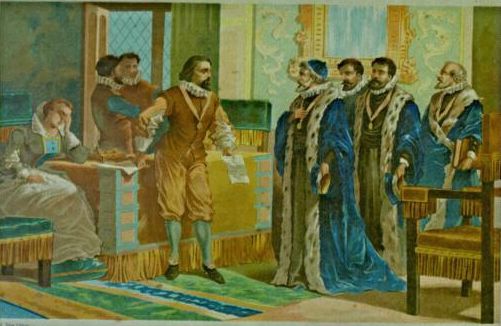
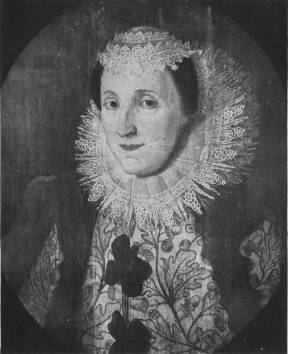
Personal life
Religious beliefs
Bacon was a devout Anglican. He believed that philosophy and the natural world must be studied inductively, but argued that we can only study arguments for the existence of God. Information on his attributes (such as nature, action, and purposes) can only come from special revelation. Bacon also held that knowledge was cumulative, that study encompassed more than a simple preservation of the past. “Knowledge is the rich storehouse for the glory of the Creator and the relief of man’s estate,” he wrote. In his Essays, he affirms that “a little philosophy inclineth man’s mind to atheism, but depth in philosophy bringeth men’s minds about to religion.”
Bacon’s idea of idols of the mind may have self-consciously represented an attempt to Christianize science at the same time as developing a new, reliable scientific method; Bacon gave worship of Neptune as an example of the idola tribus fallacy, hinting at the religious dimensions of his critique of the idols.
Marriage to Alice Barnham
When he was 36, Bacon courted Elizabeth Hatton, a young widow of 20. Reportedly, she broke off their relationship upon accepting marriage to a wealthier man, Bacon’s rival, Sir Edward Coke. Years later, Bacon still wrote of his regret that the marriage to Hatton had not taken place.
At the age of 45, Bacon married Alice Barnham, the almost 14-year-old daughter of a well-connected London alderman and MP. Bacon wrote two sonnets proclaiming his love for Alice. The first was written during his courtship and the second on his wedding day, 10 May 1606. When Bacon was appointed lord chancellor, “by special Warrant of the King”, Lady Bacon was given precedence over all other Court ladies. Bacon’s personal secretary and chaplain, William Rawley, wrote in his biography of Bacon that his marriage was one of “much conjugal love and respect”, mentioning a robe of honour that he gave to Alice and which “she wore unto her dying day, being twenty years and more after his death”.
Engraving of Alice Barnham
However, an increasing number of reports circulated about friction in the marriage, with speculation that this may have been due to Alice’s making do with less money than she had once been accustomed to. It was said that she was strongly interested in fame and fortune, and when household finances dwindled, she complained bitterly. Bunten wrote in her Life of Alice Barnham that, upon their descent into debt, she went on trips to ask for financial favours and assistance from their circle of friends. Bacon disinherited her upon discovering her secret romantic relationship with Sir John Underhill. He subsequently rewrote his will, which had previously been very generous—leaving her lands, goods, and income—and instead revoked it all.
Sexuality
Several authors believe that, despite his marriage, Bacon was primarily attracted to men. Forker, for example, has explored the “historically documentable sexual preferences” of both Francis Bacon and King James I and concluded they were both oriented to “masculine love”, a contemporary term that “seems to have been used exclusively to refer to the sexual preference of men for members of their own gender.”
The well-connected antiquary John Aubrey noted in his Brief Lives concerning Bacon, “He was a Pederast. His Ganimeds and Favourites tooke Bribes”. (“Pederast” in Renaissance diction meant generally “homosexual” rather than specifically a lover of minors; “ganimed” derives from the mythical prince abducted by Zeus to be his cup-bearer and bed warmer.)
The Jacobean antiquarian, Sir Simonds D’Ewes (Bacon’s fellow Member of Parliament) implied there had been a question of bringing him to trial for buggery, which his brother Anthony Bacon had also been charged with.
In his Autobiography and Correspondence, in the diary entry for 3 May 1621, the date of Bacon’s censure by Parliament, D’Ewes describes Bacon’s love for his Welsh serving-men, in particular Godrick, a “very effeminate-faced youth” whom he calls “his catamite and bedfellow”.
This conclusion has been disputed by others, who point to lack of consistent evidence, and consider the sources to be more open to interpretation. Publicly, at least, Bacon distanced himself from the idea of homosexuality. In his New Atlantis, he described his utopian island as being “the chastest nation under heaven”, and “as for masculine love, they have no touch of it”.
Death
On 9 April 1626, Francis Bacon died of pneumonia while at Arundel mansion at Highgate outside London.[62] An influential account of the circumstances of his death was given by John Aubrey’s Brief Lives. Aubrey’s vivid account, which portrays Bacon as a martyr to experimental scientific method, had him journeying to High-gate through the snow with the King’s physician when he is suddenly inspired by the possibility of using the snow to preserve meat:
They were resolved they would try the experiment presently. They alighted out of the coach and went into a poor woman’s house at the bottom of Highgate hill, and bought a fowl, and made the woman exenterate it.
After stuffing the fowl with snow, Bacon contracted a fatal case of pneumonia. Some people, including Aubrey, consider these two contiguous, possibly coincidental events as related and causative of his death:
The Snow so chilled him that he immediately fell so extremely ill, that he could not return to his Lodging … but went to the Earle of Arundel’s house at Highgate, where they put him into … a damp bed that had not been layn-in … which gave him such a cold that in 2 or 3 days as I remember Mr Hobbes told me, he died of Suffocation.
Aubrey has been criticized for his evident credulousness in this and other works; on the other hand, he knew Thomas Hobbes, Bacon’s fellow-philosopher and friend. Being unwittingly on his deathbed, the philosopher dictated his last letter to his absent host and friend Lord Arundel:
My very good Lord,—I was likely to have had the fortune of Caius Plinius the elder, who lost his life by trying an experiment about the burning of Mount Vesuvius; for I was also desirous to try an experiment or two touching the conservation and in-duration of bodies. As for the experiment itself, it succeeded excellently well; but in the journey between London and High-gate, I was taken with such a fit of casting as I know not whether it were the Stone, or some surfeit or cold, or indeed a touch of them all three. But when I came to your Lordship’s House, I was not able to go back, and therefore was forced to take up my lodging here, where your housekeeper is very careful and diligent about me, which I assure myself your Lordship will not only pardon towards him, but think the better of him for it. For indeed your Lordship’s House was happy to me, and I kiss your noble hands for the welcome which I am sure you give me to it. I know how unfit it is for me to write with any other hand than mine own, but by my troth my fingers are so disjointed with sickness that I cannot steadily hold a pen.
Another account appears in a biography by William Rawley, Bacon’s personal secretary and chaplain:
He died on the ninth day of April in the year 1626, in the early morning of the day then celebrated for our Savior’s resurrection, in the sixty-sixth year of his age, at the Earl of Arundel’s house in Highgate, near London, to which place he casually repaired about a week before; God so ordaining that he should die there of a gentle fever, accidentally accompanied with a great cold, whereby the defluxion of rheum fell so plentifully upon his breast, that he died by suffocation.
He was buried in St Michael’s church in St Albans. At the news of his death, over 30 great minds collected together their eulogies of him, which were then later published in Latin. He left personal assets of about £7,000 and lands that realised £6,000 when sold. His debts amounted to more than £23,000, equivalent to more than £3m at current value.
